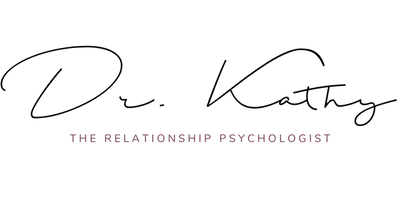When someone who has cheated reaches out to me and asks the heartbreaking question, "Am I a horrible, worthless person?" because of this, my answer is always a resounding no. You are absolutely, positively not a worthless or irredeemable person. Bad behavior doesn’t define who you are as a human being—your worst behavior reflects your struggles, your pain, and your humanity. And while those behaviors may cause harm, they can also become catalysts for growth and transformation when addressed with honesty and self-compassion.
The Difference Between Doing Bad and Being Bad
It’s essential to distinguish between doing something harmful and being a bad person. You did something hurtful, but that does not mean you are inherently bad. This distinction is crucial because shame—the belief that you are fundamentally flawed—is paralyzing. On the other hand, guilt—the recognition that your actions caused harm—can inspire positive change.
What I’ve learned in my years as a psychologist is that much of our harmful behavior doesn’t come from malice; it stems from pain. When we’re hurting, we often act in ways that are misaligned with our values in an attempt to numb, avoid, or distract ourselves from that pain. Affairs, for instance, frequently occur in the context of unmet emotional needs, unresolved trauma, or a deep sense of disconnection. These are not excuses but explanations—and understanding them is the first step toward healing.
Pain and the Drive to Cope
When we look at human behavior, especially through the lens of social psychology, we see time and again how pain and stress can drive even the most compassionate people to make harmful choices. Consider the famous Stanford Prison Experiment conducted by Philip Zimbardo in 1971. Ordinary, well-intentioned individuals, when placed in roles of power and stress, began behaving in abusive ways toward others. The study demonstrated how environmental factors and psychological pain can override moral judgment.
Similarly, in the context of an affair, the betrayal often stems from a perfect storm of personal pain, unmet needs, and maladaptive coping mechanisms rather than inherent cruelty. The question is not, "Why are you bad?" but rather, "What pain are you trying to escape, and how can you face it differently?"
Universal Vulnerability to Mistakes
One of the hardest truths to face is that all of us, given enough pain, stress, or disconnection, are capable of behaviors we’d never imagine ourselves doing. Whether it’s lashing out in anger, withdrawing from loved ones, or breaking someone’s trust, our actions under duress often reveal the depth of our struggles rather than the darkness of our character. Knowing this, we can extend the same compassion to ourselves that we’d offer to a friend.
Turning Pain Into Growth
If you’ve made a mistake that has hurt others, your work now is to:
-
Identify the Root Cause of Your Pain: What unspoken needs, fears, or wounds were driving your behavior? For instance, were you feeling unworthy, unseen, or disconnected in your relationship?
-
Engage in Healing: Healing might involve therapy, journaling, or deep conversations with those you trust. It’s about addressing the root issues rather than just the surface symptoms. A great place to start your healing journey is to check out the trauma books I have listed here and start reading one that resonates with you.
-
Learn Healthier Ways to Cope: Rather than turning to harmful behaviors to numb or distract from pain, consider strategies like mindfulness, honest communication, and boundary-setting.
-
Commit to Repair: Apologize and take responsibility for your actions without defensiveness. True repair requires consistent effort, patience, and a willingness to rebuild trust over time.
You Are Not Alone
When I say you are not a bad person, I’m not excusing your actions or minimizing their impact. Rather, I’m inviting you to see yourself as a complex, wounded, and ultimately resilient human being. Your mistakes, painful as they may be, are part of a much larger story. This story is still being written, and you hold the pen.
With effort, self-compassion, and a commitment to growth, you can emerge from this chapter stronger, wiser, and more aligned with the person you want to be. And perhaps, one day, your journey of healing will become a source of hope and inspiration for others who are struggling to forgive themselves and make amends.
You are not defined by your worst moments. You are defined by what you do next.
Dr. K's Books on Infidelity Recovery
The Courage to Stay - How To Heal From an Affair & Save Your Marriage
The Courage to Stay Journal - An Affair Recovery Workbook for the Hurt Partner
More Affair Recovery Articles
What If My Partner Is Having An Affair With Co-Worker
How To Get Your Partner To Stop Talking To the Affair Partner
I Just Found Out My Partner Cheated, Now What?
Why Do People Have Affairs?
How Do I Tell Him That I Know He Cheated?
How To End an Affair - Sample Break Up Letter
All Healing from Infidelity Articles
See All Our Infidelity Articles
